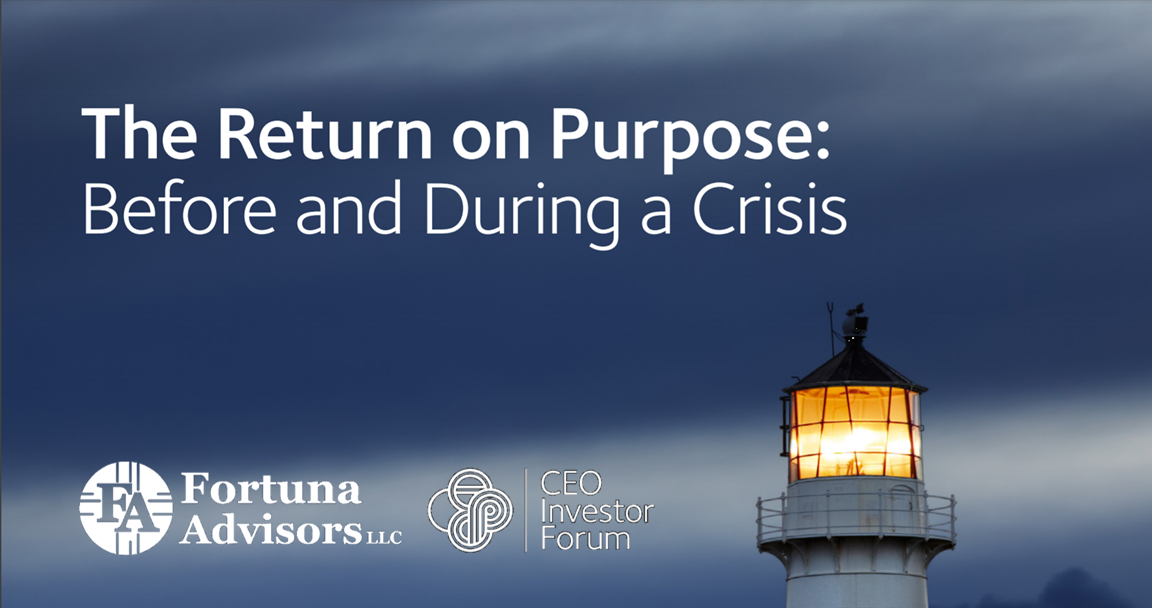by Gregory Milano and Riley Whately, Fortuna Advisors; Brian Tomlinson and Alexa Yiğit, Chief Executives for Corporate Purpose
In collaboration with CECP (Chief Executives for Corporate Purpose), Fortuna Advisors seeks to highlight a few implications of corporate purpose—in its stakeholder aspect. We look at whether a clear corporate purpose can impact the performance and valuation of listed companies and how that relationship to value may arise. As part of that, we explore a corporate purpose measurement framework developed by BERA Brand Management, and show that companies perceived to operate with higher purpose scores deliver higher average returns on capital, valuation multiples, and total shareholder return. Drawing on a CEO survey, we look at examples of corporations that have deployed their stated corporate purpose to guide them through crisis-induced decision-making.
To study the impact of purpose on performance, the authors conducted new analysis on how corporate purpose relates to company financial performance, market valuation and shareholder value creation. The analysis highlights how effective investment in corporate purpose can deliver value to both stakeholders and shareholders.
Read the full paper by following this link or downloading the PDF.

